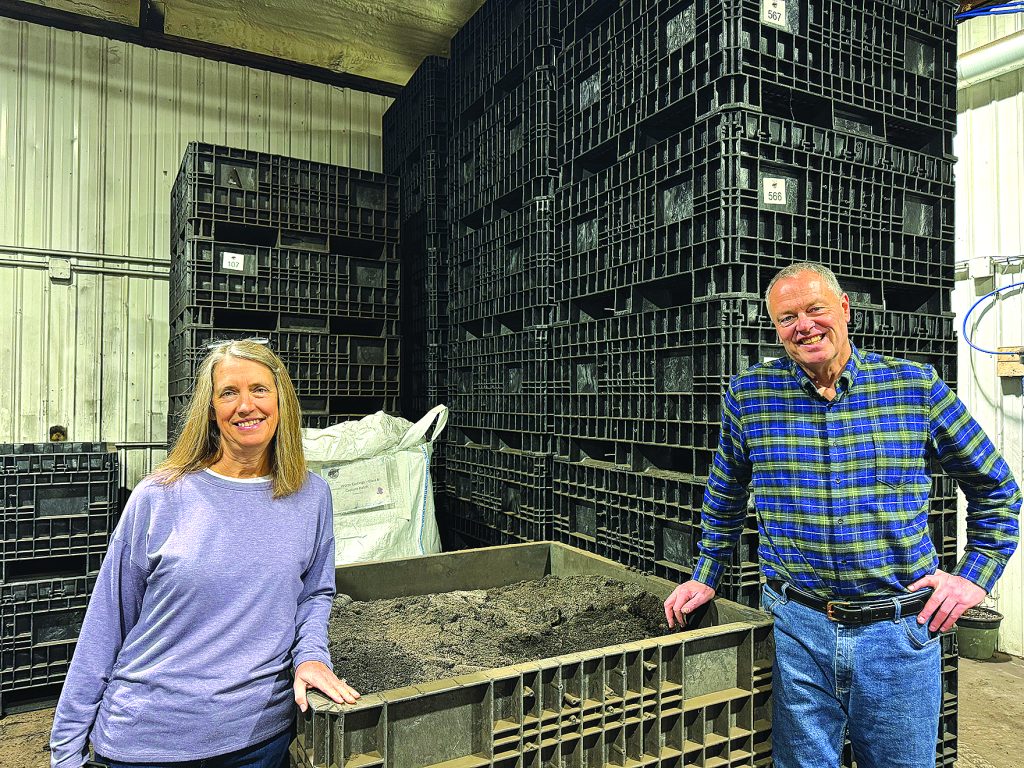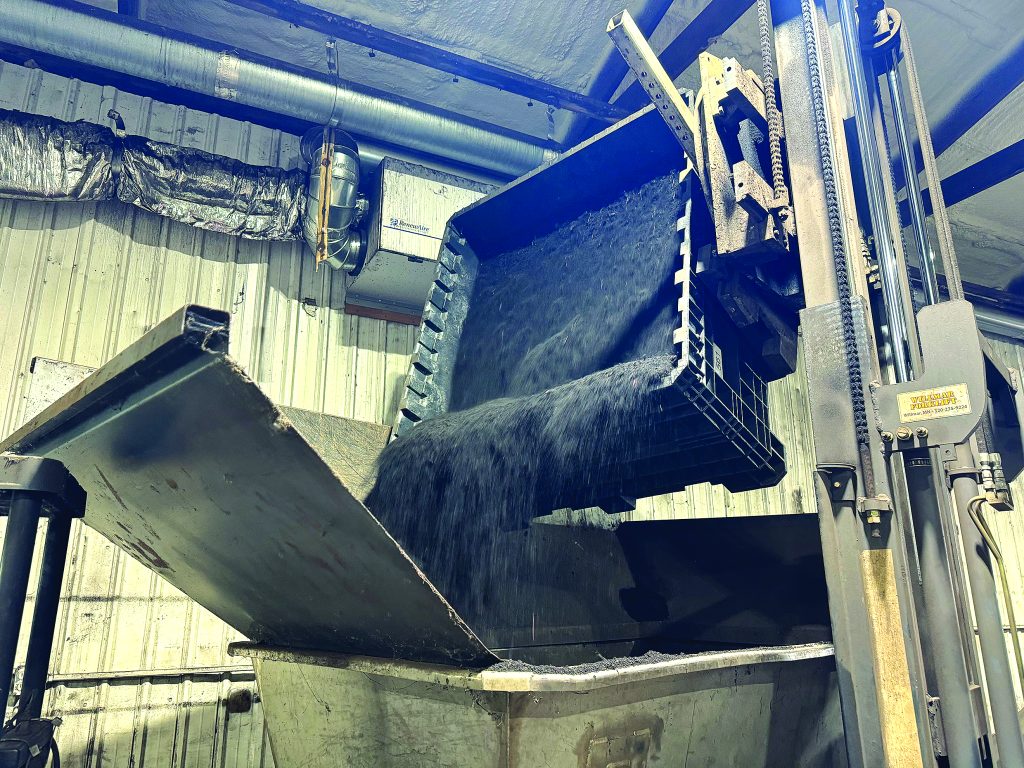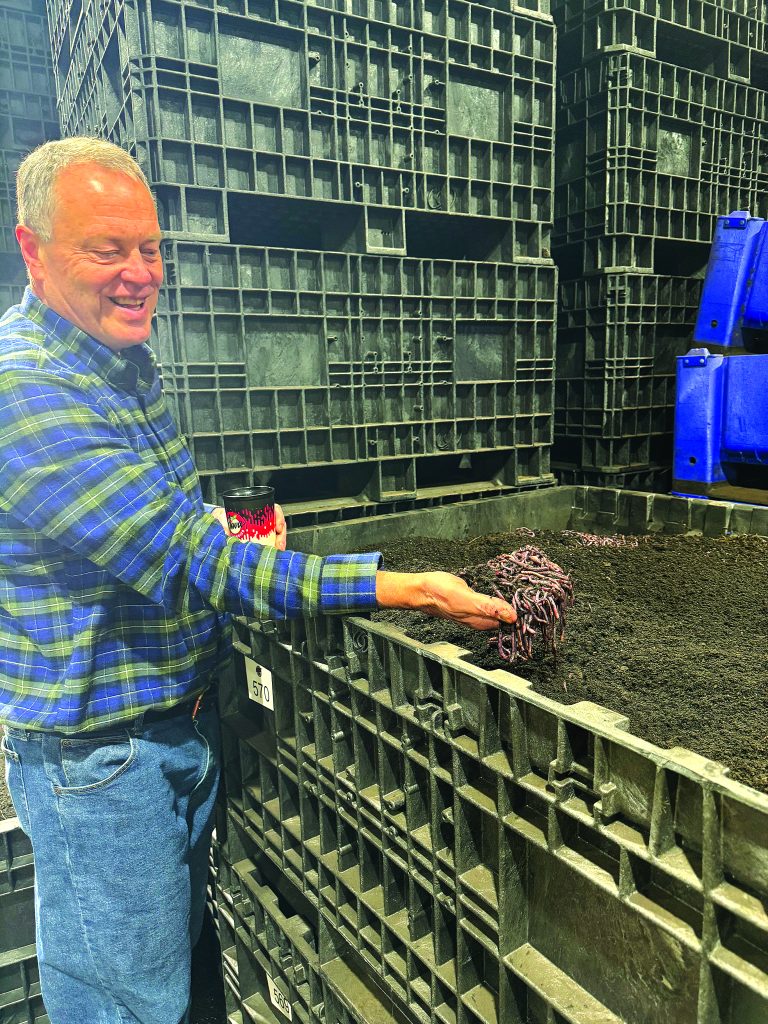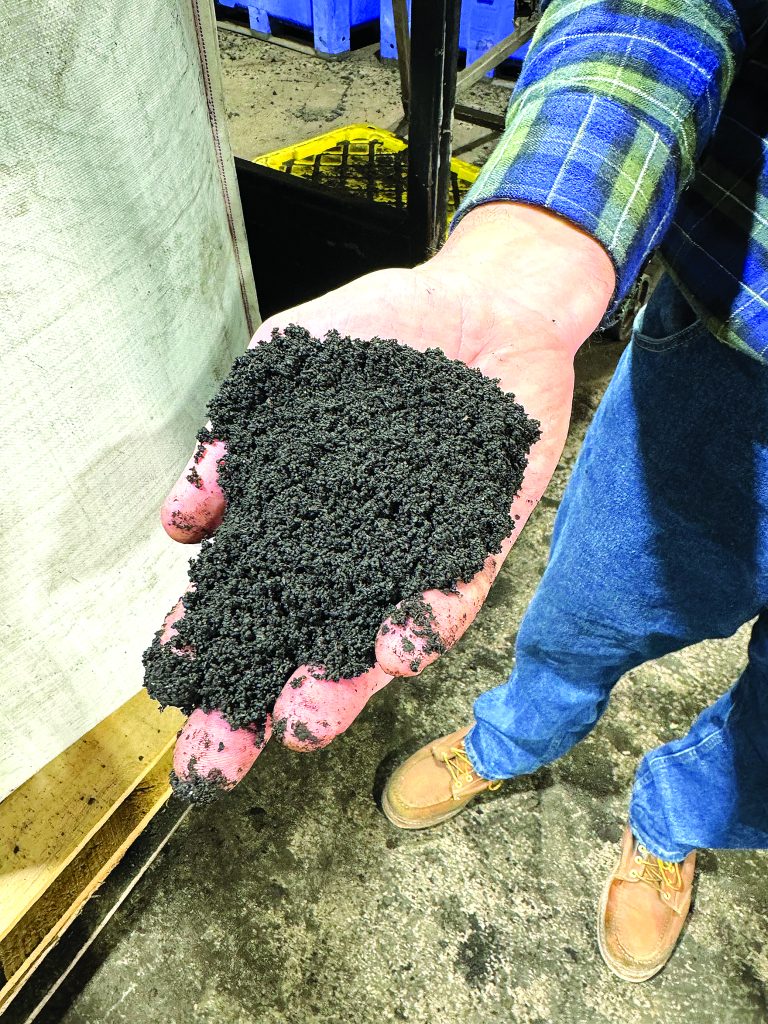Couple gives up retirement to start Brut Worm Farms
News | Published on March 25, 2024 at 12:27pm CDT




By Kris Goracke
Reporter
In the 1970s, Brooten, Minnesota, was home to Brutanza Engineering. This company designed and built the first liquid-cooled snowmobile called Brut. Although the manufacturing of the snowmobile is no longer, the name Brut has been revived.
When Mike and Karen Larson decided to start a business venture in worm castings, they began looking for buildings that would meet their needs. Their search led them to Brooten, where they found a nearby harvestable peat resource and buildings that suited their needs. “The buildings were where the parts for the Brut snowmobiles had been manufactured. My dad worked there in the winter making parts, so it felt right. It was like coming home when we found the buildings,” said Mike. And so, when naming the business, the logical choice was Brut Worm Farms.
What is a worm farm, exactly? It is the harvesting of worm castings (another name for the excrement worms produce) to create a soil builder. “Our earthworm castings are dark, rich, pure, and high in beneficial microbes, bacteria, and organic matter, which help nourish the soil,” said Mike.
After years of working as an entrepreneur, Mike, a 1980 Glenwood High School graduate, and his wife, Karen, sold their last business and retired. “We sold our company and did the retirement thing of traveling and such, but then we got bored and knew we wanted to return to work,” he said. In 2018, the Glenwood couple started Brut Worm Farms. “Someone suggested we be worm farmers. We thought it sounded interesting, so we did some research, and here we are,” Mike said. To delve deeper into the industry, the Larsons toured a worm farm in Racine, Wisconsin to understand its operations better.
The Larsons choose to use African Nightcrawlers on their farm. These worms are known for their huge appetites and will eat up to 150% of their own body weight each day. This, in turn, means the African Nightcrawler can produce worm castings 2-3 times faster than other composting worms. These worms are sensitive to cooler weather, so the Larsons keep their worm farm at 70 to 80 degrees.
The worms are kept in bins and are fed a combination of peat and organic grains. They break down this material through digestion, converting it into a nutrient-rich compost. The farm’s controlled environment ensures consistency, which is key to a quality product. Each bin houses 10,000 worms, and the farm boasts 300 bins.
Work on the worm farm is ongoing. The worms consume organic matter as it decays, and the castings are harvested every fourteen days. To harvest the castings, the bins are emptied into a separator, which separates the worms from the castings. The cocoons housing the baby worms are also separated and added to the worm nursery. The worms are transferred to new bins with fresh soil and food, and the cycle repeats.
“Worm castings are excellent soil enhancers. They are rich in nutrients, aiding plants in their growth and health. Their crumbly and light texture allows for aeration and water retention, benefiting the plant roots. They are also a natural and organic fertilizer,” said Mike.
Brut Worm Farms offers a variety of products available through Amazon and Home Depot. Their worm castings bags contain pure worm castings, which are ideal for soil builder use. They also sell Brut Super Soil, a blend of worm castings and other ingredients designed to provide essential minerals to plants. Additionally, Brut Worm Farms collaborates with local partners Dorrich Dairy and Kadejan to produce cow and chicken manure compost.
According to ZionMarket Research, North America is the largest worm casting market, with about 16% market share. Europe and Japan are followers, accounting for about 30% of the market share. The global market is expected to grow due to the increasing demand for organic food products. The growing awareness among the population about the benefits of organic food products has resulted in higher consumption and demand for food items made from chemical-free pesticides and fertilizers. Organic products promote individual health and are friendlier to the environment. A recent official survey indicated that more than 34.1% of Americans prefer to eat organic food.
Brut Worm Farms also sell their products locally. For this season they are releasing a new product called “Brut Worm Dirt.” According to Karen, “People kept stopping by asking if they could get some worm dirt because they heard it was good, so we decided to listen to our customers and just call it worm dirt. It is a blend of worm, cow, chicken and sphagnum peat which is a good mixture to add to the soils in the area.” Products can be purchased by the bag or skid loader scoop. Call 320-634-6727 for more information.




